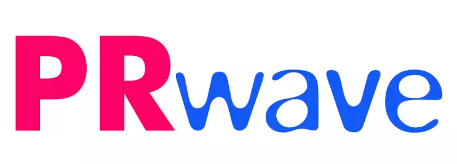 · Sales of Ford trucks with CNG/LPG-prepped engines have soared more than 350 percent since 2009, as gas prices continue to fluctuate and CNG cost remains stable
· Sales of Ford trucks with CNG/LPG-prepped engines have soared more than 350 percent since 2009, as gas prices continue to fluctuate and CNG cost remains stable
· Businesses are using CNG-fueled trucks to lower their operating costs, with the payback period for recouping conversion upfit cost as fast as 24 to 36 months of in-use service
· From vans to pickups to chassis, Ford offers customers the widest selection – among full-line manufacturers – of vehicles factory prepped for conversion
Sales of Ford vehicles capable of running on compressed natural gas or propane autogas have reached record levels, as businesses and commercial customers seek relief from constantly fluctuating gas prices.
In response to increased customer demand for compressed natural gas (CNG) and liquid propane gas (LPG) ready vehicles, Ford has expanded its portfolio of product offerings in this growing alternative-fuel market segment.

“Since 2009, we’ve seen the number of Built Ford Tough commercial vehicles sold with factory-prepped engines for CNG/LPG upfit increase by more than 350 percent,” said Jon Coleman, Ford Fleet Sustainability and Technology manager. “To expand power of choice for our commercial customers, we are offering CNG/LPG prepped engines in additional vehicle nameplates – from the Transit Connect compact van up to medium-duty F-650 models.”
As gas prices continue to rise, CNG conversion can drastically lower vehicle operating costs for fleet administrators. CNG sells for an average of $2.10 per gallon, representing a significant savings over unleaded regular fuel, selling for a national average of $3.78 per gallon according to the AAA Fuel Gauge Report. As the commercial vehicle market leader, Ford aims to provide sustainable solutions for a broad spectrum of its fleet customers.
CNG is made by compressing natural gas, which is mainly composed of methane. It is stored and distributed in hard containers at a pressure of 2,900 to 3,600 psi. About 85 percent of the CNG used in the United States is produced domestically. Depending on application and usage, businesses can see payback for CNG/LPG systems in as little as 24 to 36 months.
Another benefit of this alternative fuel: Cleaner emissions. CNG usage can result in up to 30 percent less greenhouse gas emissions according to the U.S. Environmental Protection Agency.
Companies and fleet customers are also making long-term commitments to CNG. The city of Indianapolis, where this year’s NTEA Work Truck Show is being held, has committed to shifting its cars, heavy trucks and police cruisers to a mix of electricity and natural gas, aiming to eliminate use of conventional gas and diesel fuels by 2025.
Power of choice
Ford, the best-selling commercial vehicle brand in North America, will offer the all-new Ford Transit range of full-size vans, wagons, cutaway, and chassis cab models powered by a 3.7-liter V6 equipped with a CNG/LPG prep kit to assist customers running their vehicles with these abundant, affordable, clean fuels.
Transit joins the current compact Transit Connect® van, wagon and taxi lineup; Ford Super Duty® pickups; stripped chassis, legendary E-Series vans, wagons and cutaways; and medium-duty F-450®, F-550® and F-650® variants in offering factory-prepped engines for CNG/LPG conversion.
The next generation of the Transit Connect range will add yet another CNG-ready engine when it goes on sale later this year, offering a 2.5-liter four-cylinder that is more responsive and fuel efficient due to its use of intake-variable camshaft timing.
Each Ford engine that is factory-prepped for gaseous conversion comes equipped with hardened valves and valve seats, and Super Duty trucks equipped with the 6.2-liter V8 feature a unique bi-fuel intake manifold to accommodate these cleaner-burning fuels.
CNG/LPG engine prep from the factory costs approximately $325 before the customer chooses a partner to supply fuel tanks, fuel lines and unique fuel injectors. Upfits run approximately $9,500 to $12,500, depending on fuel tank capacity.
The commercial truck market is composed of many unique vocations and vehicle requirements. Ford is collaborating with qualified upfitters to deliver completed vehicles under its Qualified Vehicle Modifier program.




